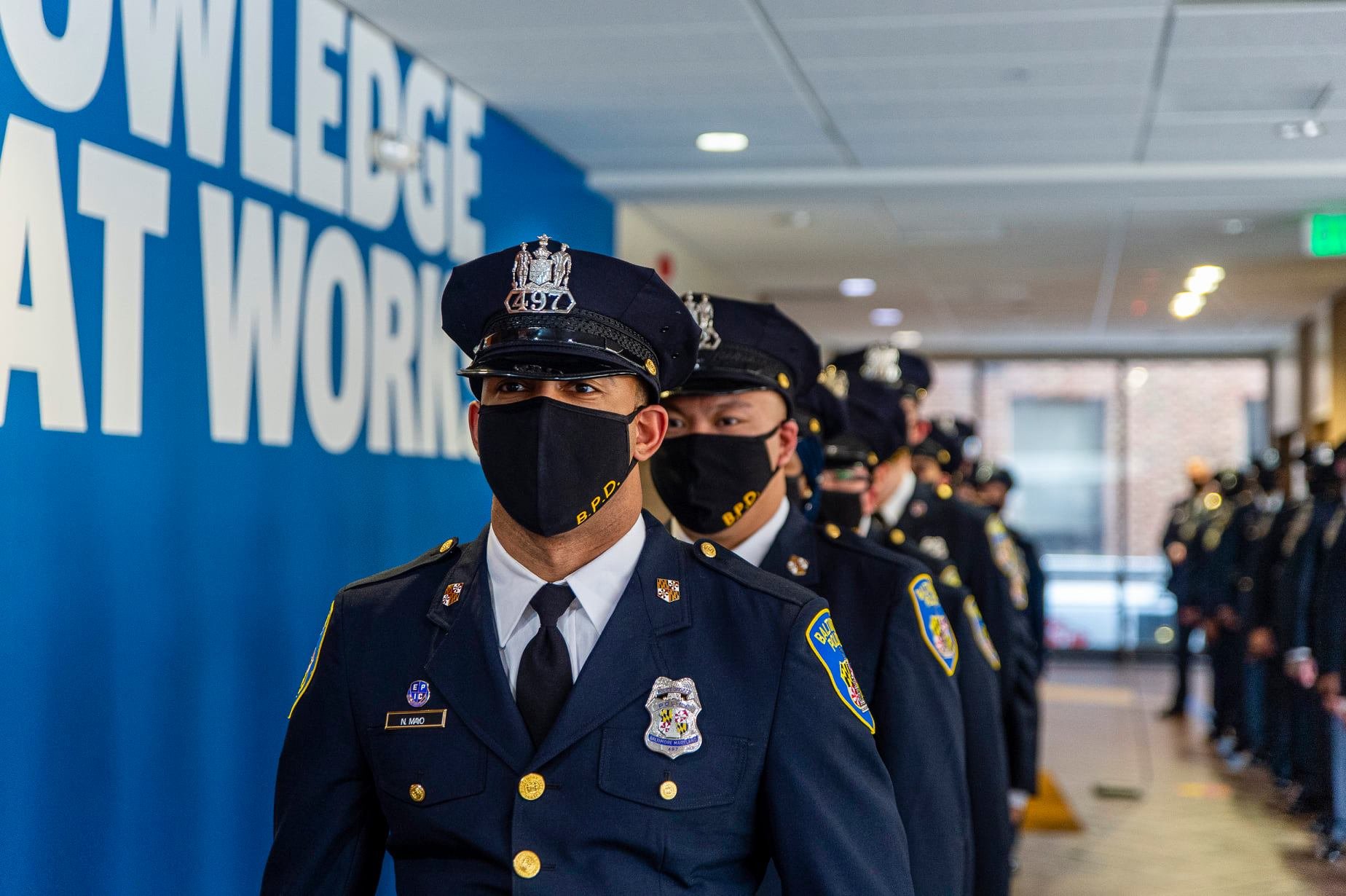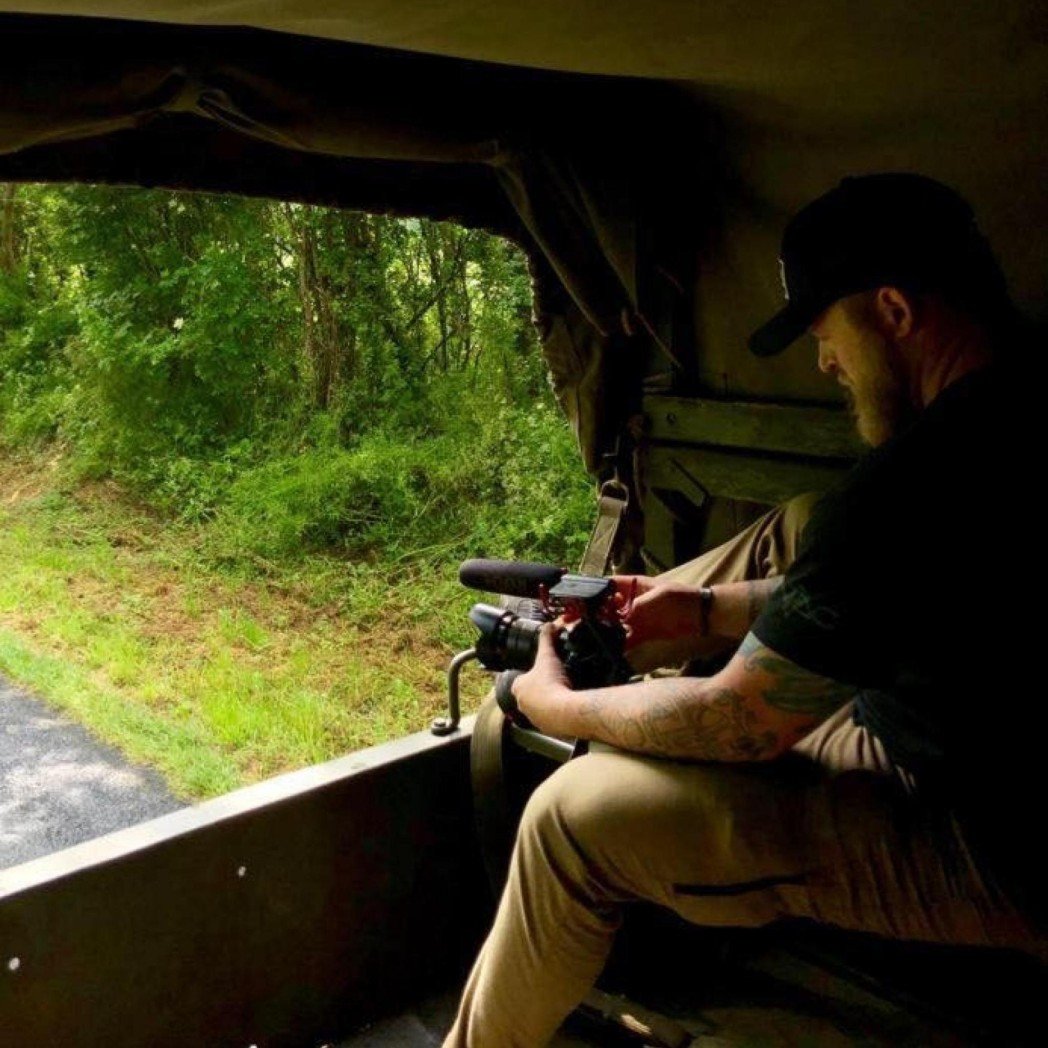Baltimore’s New 911 Call Diversion Pilot Program: How It Will Work

New Baltimore police officers from Class 2000-04 graduated March 15, 2021. Photo courtesy of the Baltimore Police Department.
Baltimore is launching a 911 Diversion Pilot program that will dispatch mental health specialists for some 911 calls. The program hopes to make police, firefighters, and medics more available for acute emergencies while getting appropriate help to those in mental crisis.
Baltimore Mayor Brandon Scott said Baltimore’s 911 center receives an average of 13,000 calls pertaining to mental health annually.
“Imagine how much harder your job would be if you receive over 1,000 calls a month to tend to manage that you are not equipped to handle,” Scott said. “Calls to focus on fixing situations that you are not trained to fix, people that are in need of help that you are not trained to give them.”
The new program will launch in early June and the architects and supporters of the program are hoping to scale it nationally. The pilot will start small, with 911 calls pertaining to behavioral health and suicide being dispatched to mental health specialists.
The goal is to fully divert calls that fall under the “‘non-suicidal and alert’’ and “suicidal and alert” categories. According to a Baltimore press release, these calls make up approximately 1,000 calls per year.
In a press conference announcing the plan, Sen. Chris Van Hollen said that people with abnormal mental health have an increased chance of dying during an encounter with police. According to policeviolencereport.org, 1,127 people were killed by police in 2020 — and of those, 97 people were “behaving erratically” or were “having a mental health crisis” at the time of their death.
Baltimore dispatchers are receiving additional training in order to better designate 911 calls to the appropriate personnel. The Baltimore City Fire Department’s medical director and other internal groups will provide daily quality assurance to ensure that calls are being properly dispatched.
The success or failure of this program will be evaluated by the Collaborative Planning and Implementation Committee, a collaboration between the city of Baltimore and the nonprofit Behavioral Health System Baltimore.
This pilot program is similar to a program that exists in Eugene, Oregon, called Crisis Assistance Helping Out on the Streets (CAHOOTS). CAHOOTS is made up of two-person teams that respond to mental health-related 911 calls. According to its website, these calls include “conflict resolution, welfare checks, substance abuse, suicide threats, and more, relying on trauma-informed de-escalation and harm reduction techniques.”
According to a case study conducted by Vera, a nonprofit focused on justice reform, “CAHOOTS and police have developed strategies for supporting one another as calls evolve on-scene and require real-time, frontline collaboration.” CAHOOTS teams resolved 20% of Eugene’s 911 calls that came through the city’s dispatch center. The teams requested police for backup 311 times out of the 24,000 911 calls it responded to in Eugene in 2019.
Read Next:

Joshua Skovlund is a former staff writer for Coffee or Die. He covered the 75th anniversary of D-Day in France, multinational military exercises in Germany, and civil unrest during the 2020 riots in Minneapolis. Born and raised in small-town South Dakota, he grew up playing football and soccer before serving as a forward observer in the US Army. After leaving the service, he worked as a personal trainer while earning his paramedic license. After five years as in paramedicine, he transitioned to a career in multimedia journalism. Joshua is married with two children.
BRCC and Bad Moon Print Press team up for an exclusive, limited-edition T-shirt design!
BRCC partners with Team Room Design for an exclusive T-shirt release!
Thirty Seconds Out has partnered with BRCC for an exclusive shirt design invoking the God of Winter.
Lucas O'Hara of Grizzly Forge has teamed up with BRCC for a badass, exclusive Shirt Club T-shirt design featuring his most popular knife and tiomahawk.
Coffee or Die sits down with one of the graphic designers behind Black Rifle Coffee's signature look and vibe.
Biden will award the Medal of Honor to a Vietnam War Army helicopter pilot who risked his life to save a reconnaissance team from almost certain death.
Ever wonder how much Jack Mandaville would f*ck sh*t up if he went back in time? The American Revolution didn't even see him coming.
A nearly 200-year-old West Point time capsule that at first appeared to yield little more than dust contains hidden treasure, the US Military Academy said.












